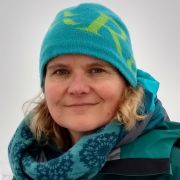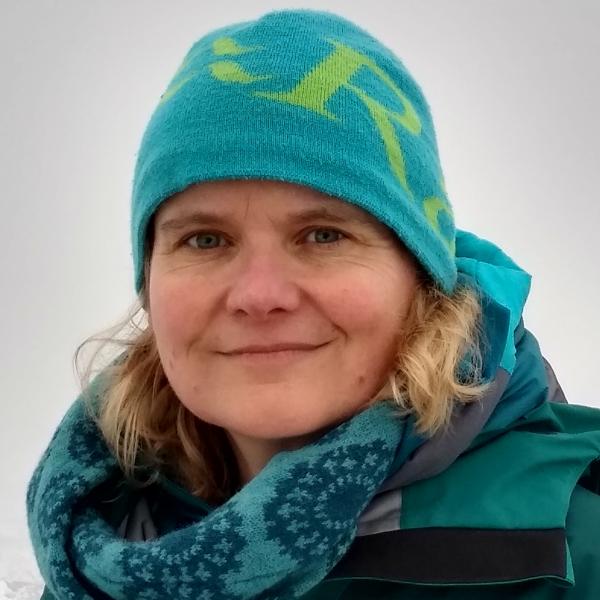Rising sea levels and the case of the ‘missing ice’
Rising sea levels are one of the biggest challenges posed by climate change. Statistician and PhD student Fiona Turner has been studying the melting of Antarctica, to help researchers get to the core of predicting future sea level rises.

Why do rising sea levels matter?
One of the main challenges presented by global warming is the rise of sea levels caused by the melting of Earth’s land ice reserves such as glaciers, the Arctic ice cap and Antarctica. It is important to predict the amount of sea level rise because it will affect coastal areas across the globe, some in more dramatic ways than others.
The best way to estimate how much the sea level will increase in the future is to look backwards at how quickly it happened in the past with a warming climate.
Dr Fiona Turner
Research Associate at King’s College London (former PhD student at the University of Sheffield's School of Mathematics and Statistics)
Direct measurements of climate phenomena only go back as far as the 17th century, so to reconstruct the possible shape of Antarctica before then, scientists use mathematical models to estimate the amount of ice stored on its surface. These models can help predict future sea level rise, but there are areas of Antarctica where different models disagree vastly about the thickness of the ice. This mathematical uncertainty can influence the accuracy of future predictions.
Learning more about past ice sheet shapes
Fiona’s research has focussed on reconstructing the shape of the Antarctic ice sheets during the Last Glacial Maximum (LGM) – the last time Antarctica was at its “peak ice”, 21,000 years ago – and on acknowledging the inconsistencies in previous models.
To do this, Fiona performed a Bayesian analysis, where calculations of probabilities are updated based on the most up-to-date relevant knowledge. In a nutshell, she used climate models, expert judgement and proxy data to update existing estimates of the shape Antarctic ice sheets had during the LGM. At the same time, she has been estimating the accuracy of her predictions.
The proxy data Fiona has relied on consists of ice cores that have been drilled by scientists in Antarctica and analysed to measure the concentration of oxygen in its different variants, known as isotopes. These measurements can then be used to get an indication of parameters such as precipitation levels at specific points in the past. In other words, water has memory.
“Ice sheets are such a huge unknown!” Fiona said. There are areas of Antarctica where modellers disagree about the thickness and shape of the ice sheets and previous predictions seem to be missing 15 meters of sea level worldwide since the LGM.
A collaboration with the British Antarctic Survey
Fiona’s PhD was co-supervised by the British Antarctic Survey (BAS), a UK research institute studying a variety of geographical phenomena such as mountains, the Arctic and the Antarctic. Fiona’s background is in statistics, but her research required her to step outside of her academic comfort zone and develop an understanding of Antarctica’s geographical past.
BAS provided Fiona with insight, training and expertise on the paleoclimatology aspects of her research. In Cambridge, where BAS is based, Fiona met people with a variety of backgrounds and expertise, and lots of mathematicians. Working with BAS meant that she had a direct line of contact with experienced geographers who helped her contextualise the maths in the realm of climatology. Fiona says the support and knowledge received from her BAS supervisor and the experts in Cambridge was key to the success of her project.
An opportunity for professional growth
“It is difficult having four supervisors and making sure that they are all up to date with things,” Fiona said, when asked about juggling different disciplines. “It is important to get enough time and support to do this kind of project because getting knowledge in a completely different discipline is difficult and requires time”.
Despite the difficulties, Fiona says, the interdisciplinary nature of her PhD has helped her find a postdoctoral research position at King’s College London where it will be a key part of her role to communicate maths and statistics to a non-specialist audience. “Although maths research tends to be portrayed as very theoretical, current problems might require mathematical models,” Fiona said. Maths can be used to understand a changing climate and make predictions on what is yet to happen.
When asked about the most enjoyable and challenging aspects of being a PhD student, Fiona says the most satisfying and, at the same time, terrifying thing was “owning the project”, taking charge and realising that supervisors are there to advise, but it is up to the PhD student to decide down which path the project is going to go. “It taught me to believe in myself and gain self confidence, realising I can take charge and that it’s what I need to do to succeed,” she said. “But that’s a really tough lesson to learn.”
The missing ice – mystery solved
With her statistical analysis, Fiona has produced a new estimate of Antarctic ice sheet shapes and has incorporated the uncertainty seen in previous reconstructions. Her research shows that most researchers have underestimated the size of the Antarctic ice sheets at the LGM. It turns out that the 15 metres of “missing ice” was actually on Antarctica all along.
Written by Roberta Fabrizi, PhD student
About Fiona
Dr Fiona Turner is a Research Associate at King’s College London. She completed her PhD in the University of Sheffield’s School of Mathematics and Statistics, as part of the Grantham Centre for Sustainable Futures. Fiona is passionate about gender equality and during her PhD she chaired the Early Career Researchers Women’s Network, organising events and opportunities to help early career researchers who identify as female find a supportive environment in academia.
Fiona’s supervisors
Related information
School of Mathematical and Physical Sciences
Grantham Centre for Sustainable Futures



